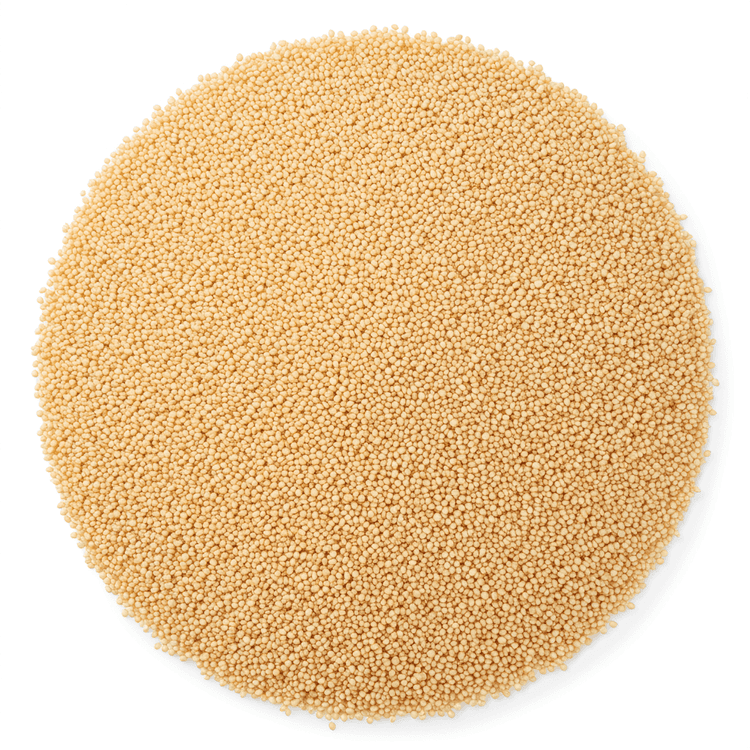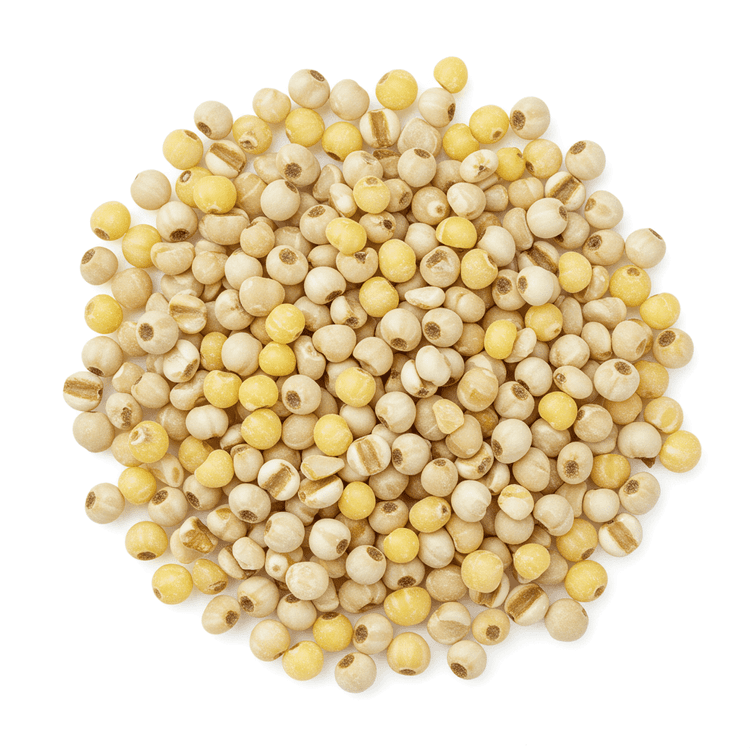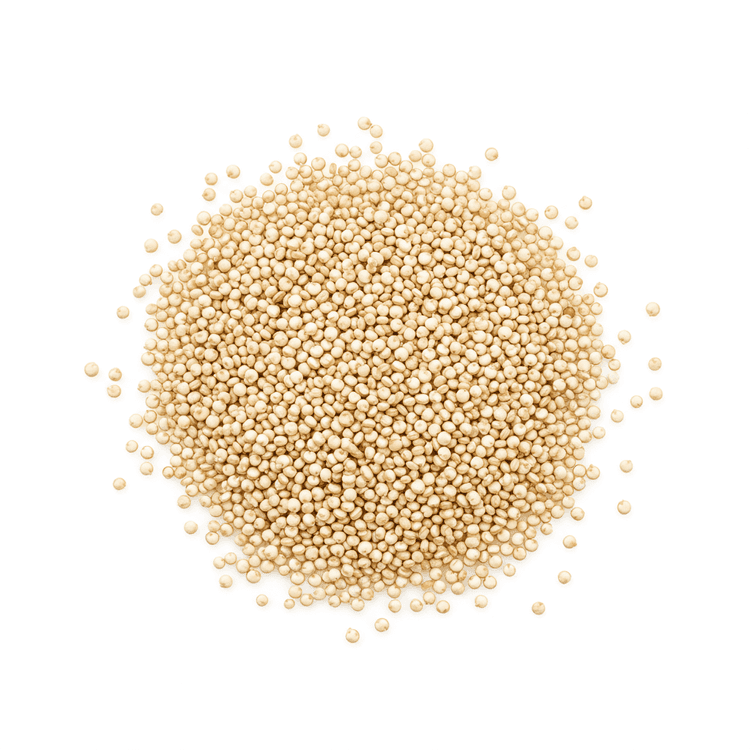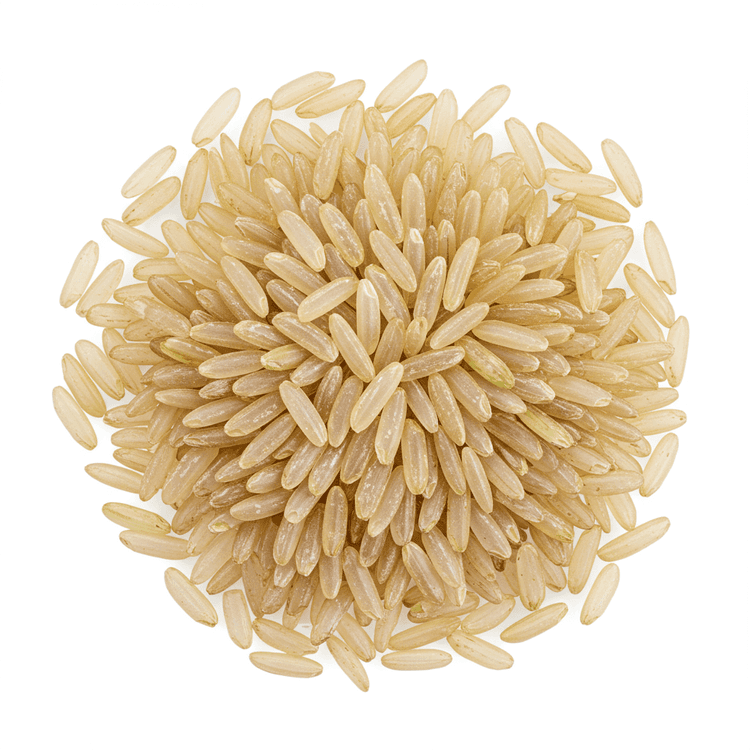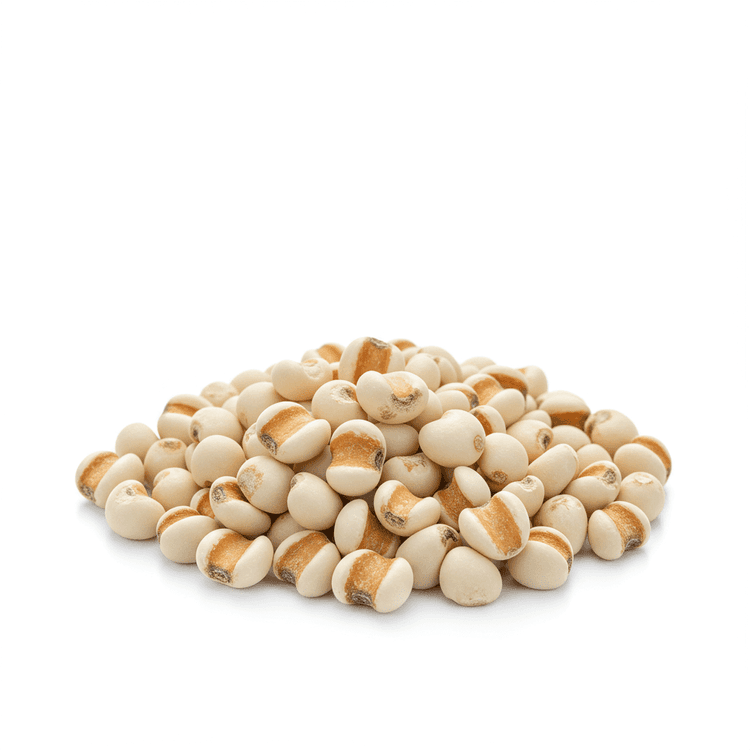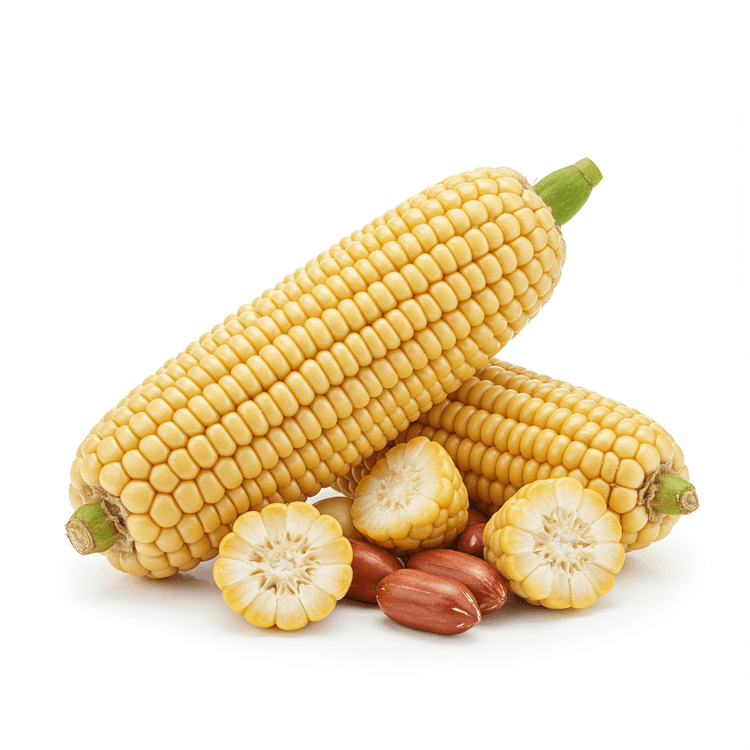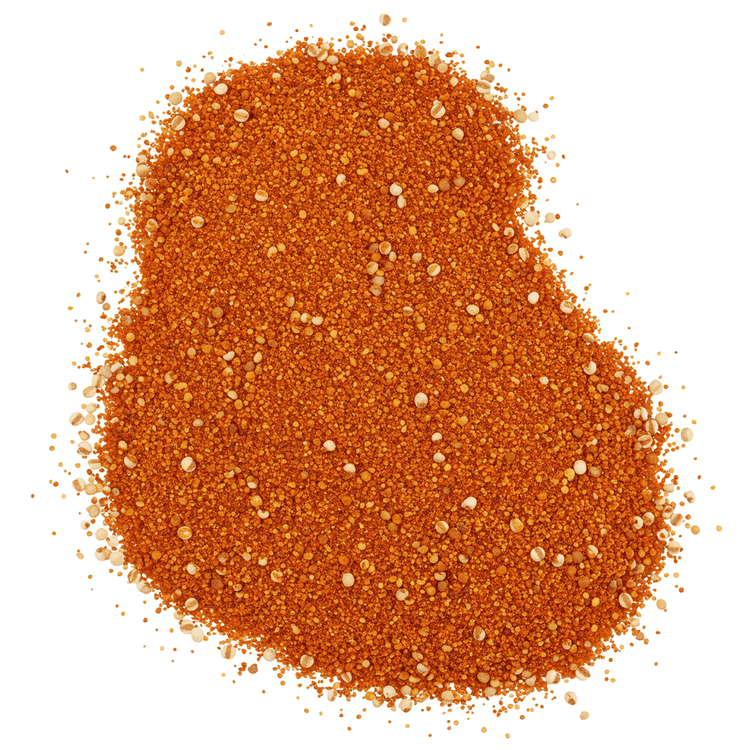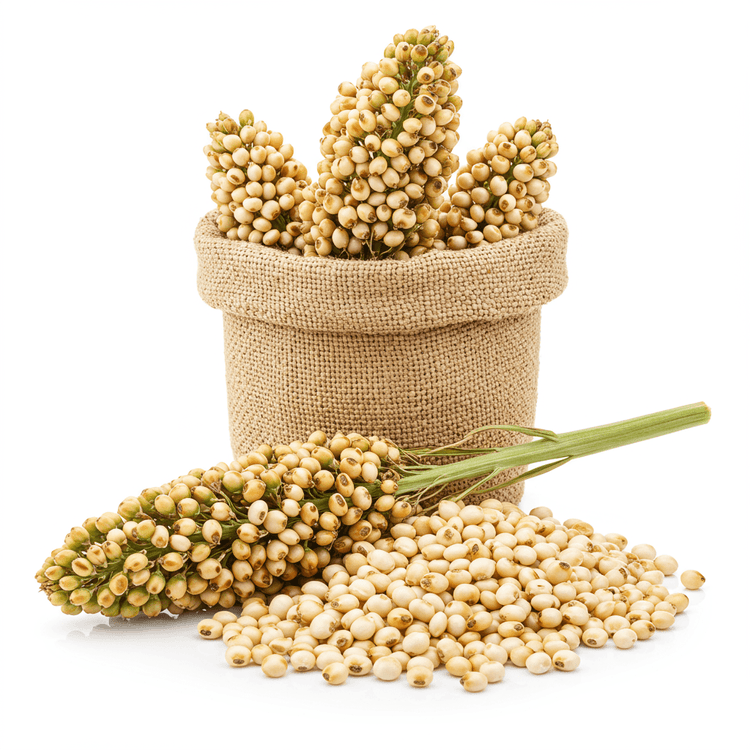
Sorghum
Sorghum is a versatile, gluten-free ancient grain known for its mild, nutty flavor and chewy texture. This nutrient-rich cereal grain comes in various forms, including whole kernels, flour, and syrup, making it a popular choice for both sweet and savory dishes. Its small, round appearance and adaptability to different cooking methods make sorghum a staple in many global cuisines. Packed with fiber, protein, and antioxidants, sorghum is a healthy alternative to wheat and rice, ideal for those seeking wholesome, gluten-free options.
Common Uses
- Use whole sorghum grains as a hearty base for salads, grain bowls, or pilafs, offering a chewy texture and nutty flavor.
- Grind sorghum into flour to create gluten-free baked goods like bread, muffins, and pancakes with a tender crumb.
- Cook sorghum as a porridge or breakfast cereal, pairing it with fruits, nuts, and sweeteners for a nutritious start to the day.
- Incorporate sorghum syrup as a natural sweetener in marinades, dressings, or baked goods for a rich, molasses-like flavor.
- Pop sorghum kernels like popcorn for a crunchy, bite-sized snack that's both fun and healthy.
- Use sorghum in soups and stews as a thickening agent or to add texture and nutritional value to the dish.
Nutrition (per serving)
Nutrition (per serving)
Calories
329.0kcal (16.45%)
Protein
11.3g (22.6%)
Carbs
72.1g (26.22%)
Sugars
1.9g (3.8%)
Healthy Fat
2.4g
Unhealthy Fat
0.5g
% Daily Value based on a 2000 calorie diet
Nutrition (per serving)
Calories
329.0kcal (16.45%)
Protein
11.3g (22.6%)
Carbs
72.1g (26.22%)
Sugars
1.9g (3.8%)
Healthy Fat
2.4g
Unhealthy Fat
0.5g
% Daily Value based on a 2000 calorie diet
Health Benefits
- Sorghum is a gluten-free grain, making it a great option for those with gluten sensitivities or celiac disease.
- It is rich in fiber, which supports digestion and helps maintain a feeling of fullness.
- Sorghum contains essential nutrients like magnesium, iron, and B vitamins, contributing to overall health.
- Its mild, nutty flavor makes it versatile for use in salads, soups, and baked goods.
- Sorghum flour is often used in gluten-free baking to create breads, muffins, and pancakes.
- It is a good source of plant-based protein, making it a popular choice in vegetarian and vegan diets.
Chefadora AI is here.
Experience smarter, stress-free cooking.
Storage Tips
Store sorghum grains in an airtight container in a cool, dry place, such as a pantry, to maintain freshness and prevent moisture exposure. Sorghum flour should be kept in the refrigerator or freezer to extend its shelf life and prevent rancidity. Always check for signs of spoilage, such as an off smell or discoloration, before using.
Marnirni-apinthi Building, Lot Fourteen,
North Terrace, Adelaide, South Australia, 5000
Australia
